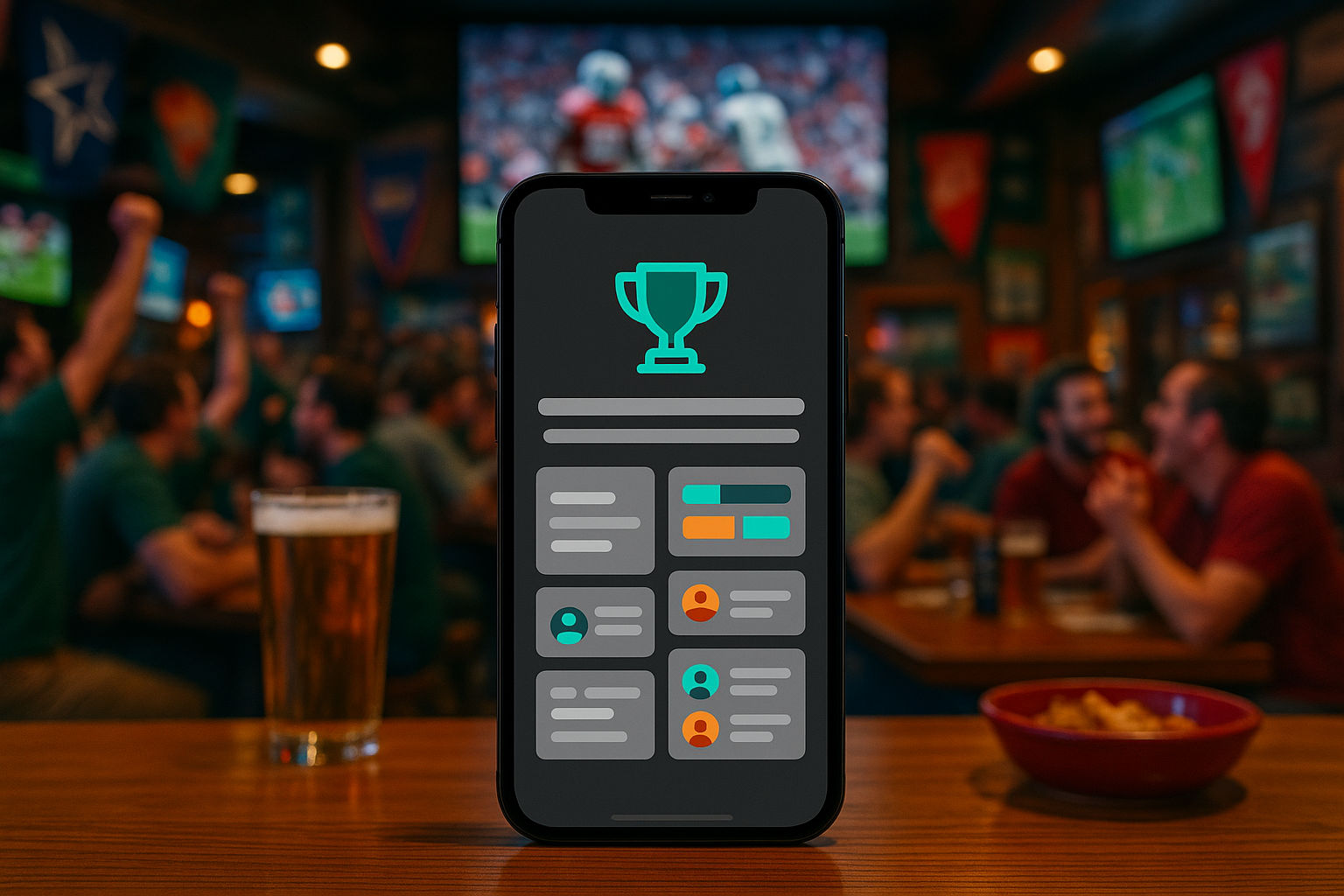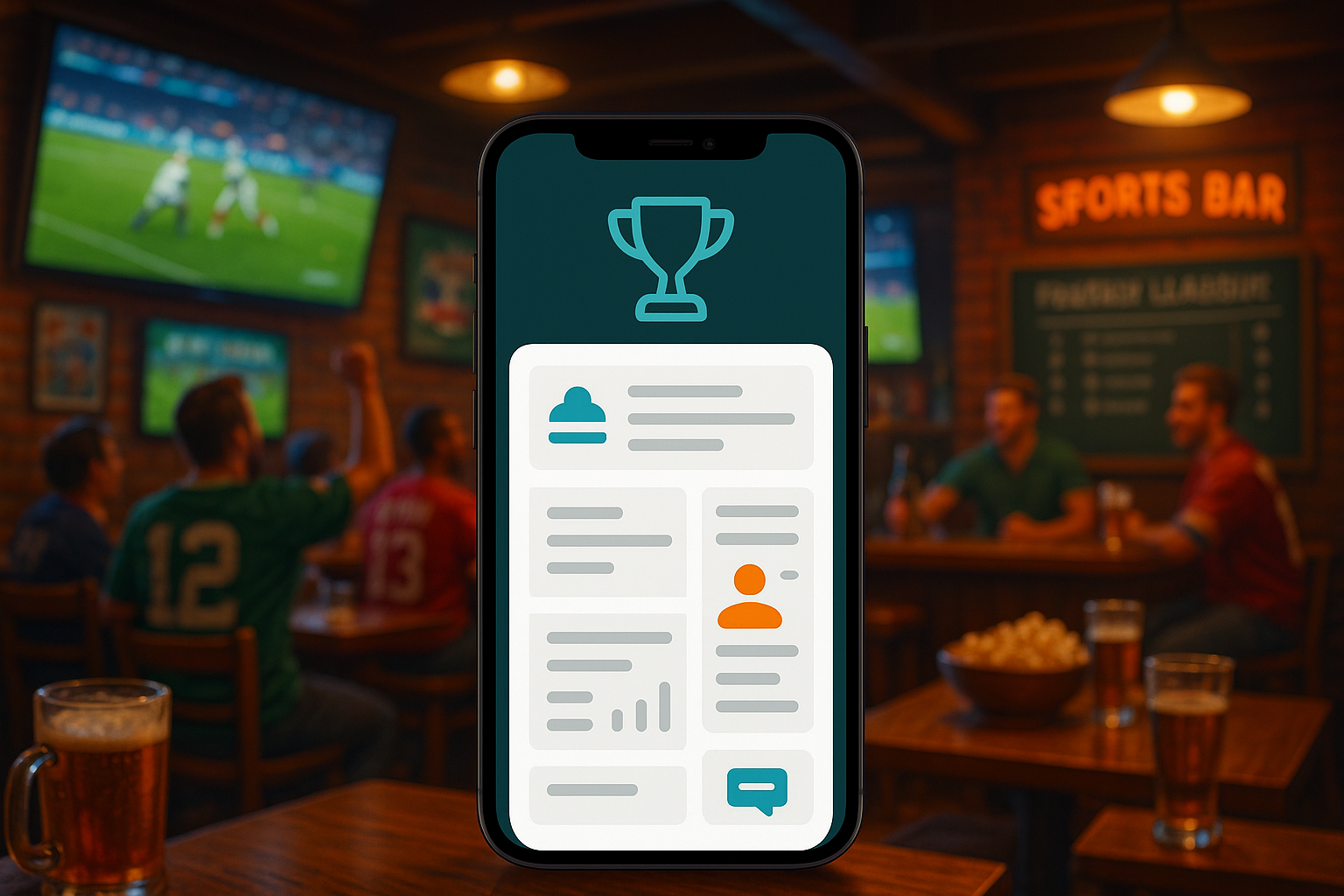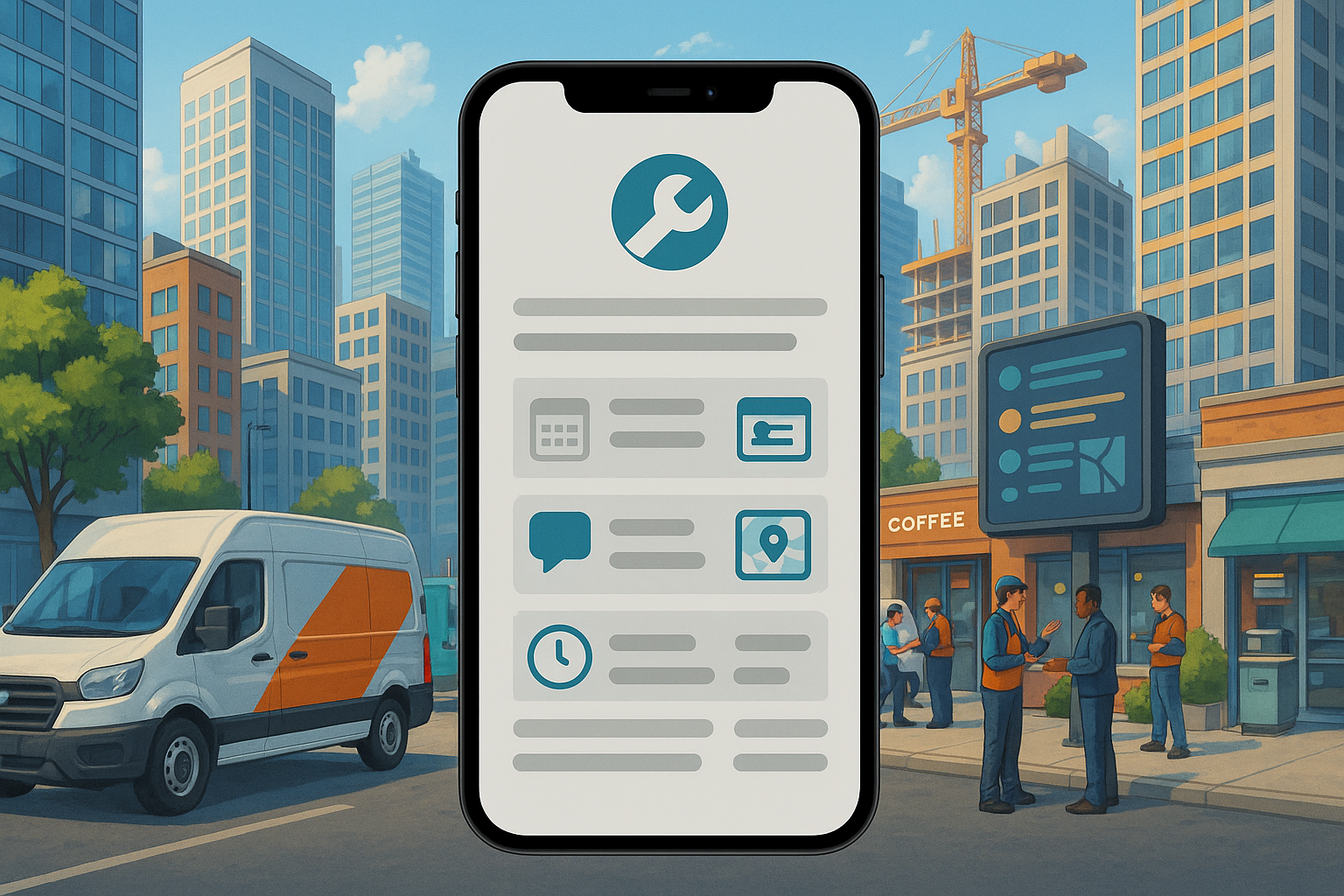Introduction
The fantasy sports market is a titan of user engagement, transforming passive fans into active, strategic managers of their own virtual teams. Tapping into this lucrative industry by launching a fantasy sports app seems like a clear path to success. However, the journey from concept to a functional, engaging, and scalable platform is fraught with technical complexities. Issues like real-time data synchronization, secure payment processing, and building an intuitive user interface can quickly overwhelm even experienced in-house development teams. The dream of launching the next big fantasy platform can stall, mired in development pitfalls.
This comprehensive guide serves as your roadmap through the intricate world of fantasy sports app development. We will dissect the core components of a successful app, explore the significant challenges of building one from scratch, and provide a clear-eyed view of the associated costs. We will also introduce you to leading development companies that specialize in this niche.
As a top US AI-powered app development firm with over 20 years of experience, we at MetaCTO have guided countless partners from idea to launch and beyond. We understand that you may not be looking to build a standalone fantasy app but rather to integrate compelling fantasy sports features into your existing product to drive engagement and open new revenue streams. This guide will illuminate how to navigate this process successfully, leveraging expert guidance to create a winning experience for your users.
What is a Fantasy Sports App?
At its core, a fantasy sports app is a digital platform where users act as general managers, building and managing virtual teams composed of real-world professional athletes. The success of a user’s fantasy team is directly tied to the statistical performance of the athletes on their roster in actual games. It is a game of skill, strategy, and foresight that keeps users deeply invested in the sports they love.
Modern fantasy sports apps go far beyond simple stat tracking. Users expect a feature-rich environment that includes:
- Real-Time Data: The experience is critically dependent on live information. Users want to see how their teams are performing as the games unfold, with live score feeds, up-to-the-second player stats, and instant game updates.
- Seamless Payments: Whether for league entry fees or premium content, users must feel safe when making transactions. Secure, integrated payment processing is non-negotiable.
- Easy Navigation: A complex or confusing interface is a primary reason for user drop-off. The app must be intuitive, allowing users to effortlessly manage their teams, find information, and interact with the community.
- Interactive Gameplay: The app must be more than a static leaderboard. Dynamic features like drafting tools, drag-and-drop lineup management, and in-app chat create an engaging and immersive experience.
The fundamental user journey involves several key mechanics:
- Onboarding: A streamlined registration and verification process is the first, crucial step. A complex signup process can deter users before they even start. Offering social media login options and quick OTP verification can make or break user adoption.
- Team Management: This is the heart of the experience. Users need intuitive tools to draft players, edit lineups, make substitutions, and set strategies. Access to real-time player statistics, injury updates, and historical data is vital for making informed decisions.
- Competition: Users compete against others in leagues or contests. Dynamic leaderboards that update in real-time display current rankings and foster a sense of healthy competition, keeping users hooked.
- Community: Social features transform a solitary game into a vibrant community hub. In-app chat, forums, and social media sharing allow players to discuss strategies, celebrate victories, and engage in friendly rivalries.
Ultimately, a successful fantasy sports app provides an edge by offering insights that can rival traditional scouting reports, all while creating a fun, competitive, and social environment for sports fans.
Reasons It Is Difficult to Develop a Fantasy Sports App In-House
While the concept of a fantasy sports app is straightforward, the execution is a significant technical undertaking. Many businesses underestimate the specialized expertise required, leading to projects that are over budget, behind schedule, or fail to meet user expectations. Here are the primary reasons why in-house development is so challenging.
Technical Challenges in Fantasy Sports App Development
| Challenge | Description | Consequence of Failure |
|---|---|---|
| App Security | Protecting sensitive user data (personal information, payment details) is paramount. This requires implementing robust technologies like end-to-end encryption, multi-factor authentication, and connecting with a safe cloud network. | Ignoring security can lead to unauthorized data exposure, loss of funds, legal repercussions, and a complete erosion of user trust. |
| UI/UX Design | The user interface (UI) and user experience (UX) must be flawless. Users need to perform basic functions like drafting players or setting a lineup without friction. An app overloaded with features can become slow and confusing. | An unsatisfactory UI/UX will frustrate users, leading them to abandon the app. Poor performance can also make the application more vulnerable to cyber threats. |
| Performance & Optimization | Fantasy apps process immense amounts of data, especially during live games. The app must handle high data loads without crashing or lagging. Mobile app optimization is critical to enhance overall functionality. | Poor performance and slow loading times lead to user frustration and churn. A slow app is also more susceptible to security risks. |
| App Testing | Thorough testing across a wide range of devices, operating systems, and software versions is essential to identify and fix bugs, errors, and potential crashes before launch. | Skipping this step inevitably results in a buggy, unreliable app. This guarantees a poor user experience and negative reviews. |
| Platform Compatibility | An app must function correctly across different platforms (iOS, Android) and their various versions. Avoiding platform compatibility testing can severely impact the app’s functionality for a large segment of your user base. | The app may work on one device but fail on another, alienating a significant portion of potential users and damaging the brand’s reputation. |
| Scalability | As the user base grows, the app’s infrastructure must be able to handle the increased load without a drop in performance. A lack of scalability can cause the app to slow down or crash during peak times. | Compromising the user experience during high-traffic events (like a major tournament final) is a critical failure. Implementing scalable options is essential to handle volatility. |
| App Maintenance | Technology evolves, and new security vulnerabilities emerge. A fantasy sports app requires continuous updates and maintenance to add new features, fix bugs, and patch security holes. | Lack of ongoing maintenance can lead to security issues, performance degradation, and an app that feels outdated, eventually causing users to leave. |
Building a team with deep expertise in all these areas—from cybersecurity and backend architecture to front-end design and API integration—is a massive undertaking. It is often more efficient and effective to partner with a specialized agency that has a proven track record in navigating these specific challenges.
Different Types of Fantasy Sports Apps
Not all fantasy sports experiences are created equal. The landscape is primarily divided into two major formats, each catering to different types of players and offering a distinct strategic challenge: Daily Fantasy Sports (DFS) and traditional Season-Long leagues.
Daily Fantasy Sports (DFS)
DFS contests have surged in popularity due to their fast-paced nature and low commitment. As the name suggests, these contests reset every day or, for sports like football, every week.
- Structure and Pace: DFS offers a fast-paced environment where players can win—and receive their winnings—quickly. Success is measured in hours, not months. The ability to start fresh with each new contest means a bad beat or a poor lineup choice has no lingering consequences.
- Flexibility: This format is incredibly flexible, allowing participants to join games at their convenience without the long-term commitment required by season-long leagues. This makes it highly attractive to users with erratic schedules or those who want to engage with fantasy sports spontaneously.
- Strategy: Roster construction in DFS is a unique skill. Winning often involves identifying high-performing, reliable players and supplementing them with high-risk, high-reward options for a specific slate of games. Analyzing short-term matchups, such as a player’s performance against a specific team’s defense, is crucial. Effective bankroll management is also essential for playing seriously and sustainably.
Season-Long Leagues
This is the classic fantasy sports format, where a group of managers drafts teams and competes against each other over the course of an entire sports season.
- Structure and Pace: Season-long leagues are a marathon, not a sprint. They require long-term strategy, ongoing management, and adaptability. Managers must plan for the entire season, including the crucial playoff weeks.
- Community and Camaraderie: A significant benefit of this format is the sense of community that develops. Leagues often consist of friends, family, or coworkers, adding a layer of social interaction, rivalry, and bragging rights that lasts for months.
- Strategy: Success in a season-long league is built on a foundation of a strong draft. This involves extensive research, understanding long-term player value, and anticipating the moves of other league members. Throughout the season, managers stay engaged by making trades and using the waiver wire to pick up emerging players. Roster construction focuses on balance and depth, ensuring the team is resilient enough to withstand injuries and bye weeks.
Choosing which format to offer—or whether to offer both—depends entirely on the target audience you wish to attract. DFS appeals to those seeking instant gratification and flexibility, while season-long leagues cater to those who enjoy deep strategy and community engagement.
Cost Estimate for Developing a Fantasy Sports App
Estimating the cost of building a fantasy sports app requires a detailed look at several factors, including design complexity, feature set, and the development team’s location and experience. It’s not a one-size-fits-all number. Here is a breakdown of the potential costs involved.
Minimum Viable Product (MVP) Development
For startups looking to test the market, a Minimum Viable Product (MVP) is the most logical first step. An MVP includes only the core features necessary to be functional and attract early adopters.
Roughly, an MVP for a fantasy sports app can cost from $10,000 to $60,000. The final price depends on the specific requirements and complexity of the initial feature set.
An MVP allows you to validate your idea and gather user feedback without a massive upfront investment. At MetaCTO, we specialize in Rapid MVP Development, helping you launch a streamlined version of your app in 90 days or less.
Design Costs
The look and feel of your app are critical for user adoption. The cost of design is influenced by the number of screens, the complexity of interactions, and the degree of customization.
For a rough estimate, a comprehensive design for a fantasy sports app can cost from $5,000 to $50,000, depending on the project’s scope.
Development Team Costs
Hiring a development team is the most significant expense. Hourly rates vary widely based on the role, experience level, and geographic location of the talent.
| Role | Average Hourly Rate (USD) |
|---|---|
| Project Manager | $50 - $150 |
| Front-end Developer | $30 - $100 |
| Back-end Developer | $40 - $120 |
| Mobile App Developer (iOS or Android) | $40 - $120 |
| API Integration Specialist | $40 - $100 |
| QA Tester | $30 - $80 |
Approximate Costs of Famous Fantasy Sports Apps
To provide some real-world context, here are the approximate development cost ranges for some of the most popular fantasy sports apps on the market. These figures represent the potential investment needed to build a platform with a comparable level of polish and features.
| App Name | Approximate Development Cost (USD) |
|---|---|
| ESPN Fantasy Sports | $50,000 - $150,000 |
| Yahoo Fantasy Sports | $70,000 - $150,000 |
| NFL Fantasy Football | $55,000 - $120,000 |
| MyFantasyLeague | $40,000 - $110,000 |
| DraftKings | $40,000 - $90,000 |
| FanDuel | $40,000 - $80,000 |
| CBS Sports Fantasy | $6,000 - $100,000 |
These costs underscore the significant investment required to build a competitive, full-featured fantasy sports platform from the ground up.
Top Fantasy Sports App Development Companies
Choosing the right development partner is the single most important decision you will make. You need a team that not only understands the technology but also grasps the nuances of the fantasy sports world.
1. MetaCTO
As a leading AI-powered mobile app development agency in the US, we at MetaCTO are uniquely positioned to not just build standalone fantasy apps, but to expertly integrate compelling fantasy sports mechanics into existing platforms. Many businesses want to leverage the incredible engagement of fantasy sports to enhance their own products, and that is where our deep expertise shines.
Why is Integrating Fantasy Sports So Hard?
Adding fantasy sports features to an existing app is far more complex than it appears. It introduces a host of challenges that can derail a project if not handled by experts:
- Real-Time Data Integration: You need to connect with reliable sports data APIs (like SportsDataIO or RapidAPI) to fetch live scores, player stats, and match updates. This data must be processed and displayed instantly and accurately. Any lag or error destroys the user experience.
- Complex Business Logic: The rules for scoring, trading, and winning vary dramatically between sports and league types. Implementing this logic on the backend requires sophisticated and error-free code.
- Scalable Architecture: Your app’s backend, potentially built with Node.js, Python, or Firebase, must handle massive spikes in traffic during live games without slowing down.
- Secure Transactions: If your fantasy game involves entry fees or prizes, integrating secure payment gateways like Stripe or Razorpay is essential. This requires adherence to standards like PCI DSS to protect user financial data.
- Engaging Frontend: The user-facing components, whether built with native code (Swift/Kotlin) or cross-platform frameworks (Flutter/React Native), must be intuitive and interactive to keep users engaged.
How MetaCTO Helps
With over 20 years of experience and more than 120 successful projects launched, we have a proven process for navigating these complexities. We are not just developers; we are technical partners who help you build, grow, and monetize your application. Our custom mobile app development service handles every step of the process, from initial strategy and design to launch and ongoing optimization. We leverage our expertise in AI development to build smarter, more personalized experiences, such as suggesting players or strategies based on a user’s past behavior. We ensure your fantasy integration is seamless, scalable, and secure, allowing you to focus on your core business while reaping the benefits of industry-leading user engagement.
2. Nimble AppGenie
Nimble AppGenie has established itself as a market-leading fantasy sports app development company, recognized by firms like Clutch for their quality work. They have a proven track record of helping both startups and large enterprises turn their concepts into fully functional fantasy sports platforms.
- Expertise and Technology: Nimble AppGenie’s team of experienced developers utilizes the latest tools and a creative approach to stand out. They are proficient in using technologies like AI and machine learning to enable smart player recommendations and adaptive gameplay. They also have experience with blockchain to enhance security and transparency, and IoT to keep users connected to their fantasy world.
- Comprehensive Services: They offer a wide range of services, including the development of apps for fantasy football, basketball, baseball, rugby, cricket, and even niche sports like bull riding and horse riding. They also provide white-label solutions that can be customized to a client’s specific needs.
- Development Process: Nimble AppGenie follows an Agile development methodology to ensure transparency and collaboration. They prioritize client communication with regular progress reports and fixed-interval meetings. They also guarantee client data protection by signing an NDA and transferring the full source code upon project completion.
- Client Success: With over 350 completed projects, 250+ global clients, and a 98% client retention rate, Nimble AppGenie has demonstrated its ability to deliver quality, market-ready fantasy apps on time.
Conclusion
Developing a fantasy sports app—or integrating its features into your own product—is a powerful way to capture user attention and create a deeply engaging experience. However, as we’ve explored, the path is layered with technical challenges, from ensuring robust security and real-time data accuracy to building a scalable architecture and an intuitive user interface.
This guide has walked you through the essential components of a fantasy sports app, the critical differences between daily and season-long formats, the realistic costs involved, and the top-tier development partners who can bring your vision to life. The complexities of in-house development often make partnering with a specialized agency the most strategic and cost-effective choice.
Whether you aim to launch the next DraftKings or want to add a new dimension of engagement to your existing app, the key is to work with a team that has been there before. At MetaCTO, we combine two decades of app development experience with cutting-edge AI to deliver solutions that are not just functional, but exceptional. We are more than a vendor; we are your technical partner, dedicated to helping you build, launch, and grow.
If you are ready to explore how fantasy sports can transform your business, let’s talk. Talk with a Fantasy Sports expert at MetaCTO today to discuss integrating winning features into your product.






